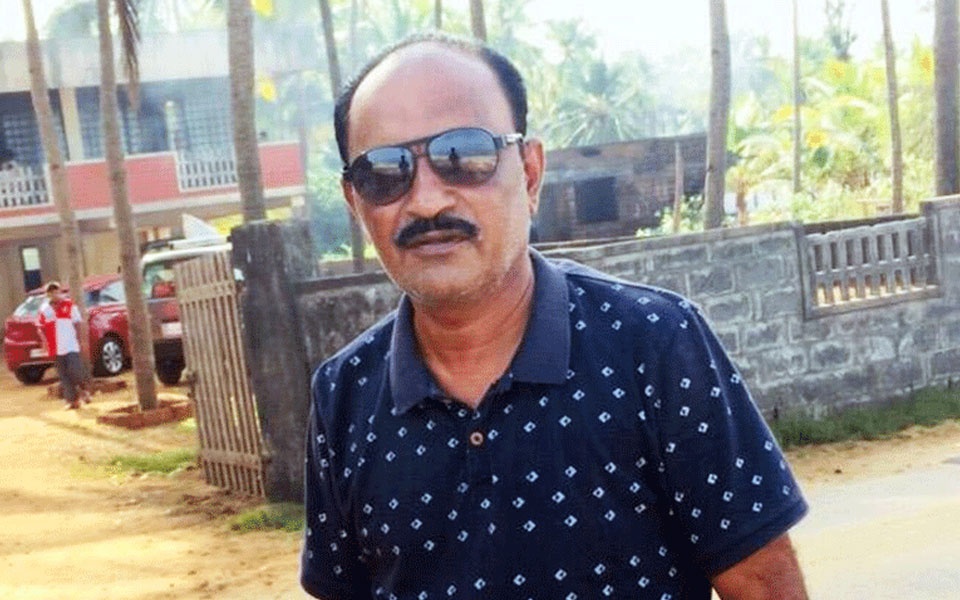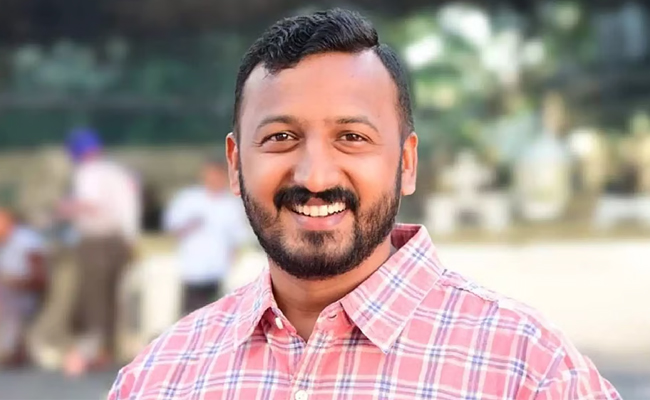Moodbidri, September 7: Businessman, social activist Sheik Muneer, popularly known as Muneer Bhai, passed away after a short term illness, at a private hospital in Mangaluru on Friday morning. He was 55.
Muneer who started his business with a petty shop at Puthige, became grama panchayat member and acting president of Puthige grama panchayat. He was loved by people of all communities as he was responding to the problems of people. People recall his generosity to help people who came to him seeking help. He was active in JDS and working as a contractor and member of the Noorani Masjid.
He is survived by wife and three children.
Let the Truth be known. If you read VB and like VB, please be a VB Supporter and Help us deliver the Truth to one and all.
New Delhi (PTI): A massive fire swept through a cluster of shanties in Delhi's Rithala area early on Thursday, killing a 17-year-old girl and destroying more than 100 huts that left dozens of migrant families homeless.
Firefighters pulled out the charred body of the girl who was initially reported missing after the fire.
The blaze that was reported to authorities at 4.15 am spread rapidly through the densely packed shanties, triggering panic among residents who rushed out of their huts to escape the flames.
Residents said the shanty cluster was home to migrant labourers from Bihar, Uttar Pradesh and West Bengal and other states who worked as daily wage workers in nearby factories, construction sites and small establishments.
The Delhi Fire Services (DFS) launched a large-scale firefighting operation and deployed more than 18 fire tenders to control the blaze.
After the fire was brought under control, firefighters recovered the charred body of a teenage girl from the debris.
"Teams reached the location soon after the call was received and began firefighting operations. The fire had already engulfed several shanties in the cluster," a fire official said.
Officials said the blaze spread quickly because the huts were built very close to each other and many contained highly inflammable materials such as plastic sheets, wooden planks and cloth.
Firefighters and local police personnel carried out rescue and cooling operations and managed to bring the fire under control by around 6.30 am.
"The fire had spread to more than 100 huts and a adjacent godown of paper rolls and cardboard and the doors and windows of some residential flats also caught fire. A 17-year-old girl charred body was also recovered. Her body was sent to BSA Hospital by PCR," the officer said.
Police said the girl has been identified and further legal procedures are underway.
Many families said they lost everything in the fire as they had to flee with no belongings during the fire.
"We ran out to save our lives when the fire started. Within minutes everything was burning. Our hut, clothes, money and documents -- everything has turned to ashes," said Ramesh Kumar, a labourer from Bihar who has been living in the area.
Another person from West Bengal, said the flames spread so quickly that people barely had time to wake their children and escape.
"We woke up to screams and saw fire everywhere. We somehow managed to take the children outside. We could not save anything from the hut. All our belongings are gone," she said.
Some residents were seen searching through the burnt remains of their huts in the hope of finding salvageable items. "We worked for years to build this small hut and collect household items. In just a few minutes, everything we had earned was destroyed," said a migrant worker from Uttar Pradesh.
Police said the exact cause of the fire is yet to be ascertained and an investigation is underway.





